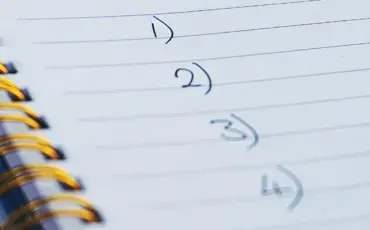
What is Conveyancing and How Does it Work?
If you are looking into buying your first home, the conveyancing process can be overwhelming, especially if you’re unfamiliar with it.
We have put together this useful, comprehensive guide on conveyancing to help you get a better understanding of what it is, what it means and why it’s important to seek the help of a professional conveyancing solicitor.
What is Conveyancing?
Before we can delve into how conveyancing works, it’s first important to understand what it is. Essentially, conveyancing refers to all the legal and administrative work that is associated with transferring the ownership of land or buildings from one person to another.
The conveyancing process begins once you have had an offer accepted on your land or property and continues until the final contract has been assigned and the money transferred, marking the purchase as complete.
How Long does Conveyancing Take?
On average, conveyancing can take anywhere from 2-3 months. However, it is important to note that the time it takes depends on individual circumstances and the number of people that are involved in the chain.
Other factors that can increase this time include:
Problems with a property title – this includes things such as missing documents, such as a lack of necessary planning permissions
Adverse search or survey results – this may lead to further investigations or construction work
People changing their minds – this can happen at any point during the conveyancing process, apart from when the contracts have been signed and completion has been reached.
What Does a Typical Conveyancing Timeline Look Like?
Based on our experience, this is what a typical conveyancing timeline looks like from start to finish, broken down into weeks:
Stage 1 – in the first stage, the buyer’s offer is accepted. From there, a conveyancer is instructed to oversee the purchase of the property. The conveyancing solicitor will obtain the draft contracts from the seller’s solicitor and raise any enquiries. The buyer also applies for the mortgage and arranges a survey of the property.
Stage 2 – in this stage, searches are requested by the conveyancer and the seller’s solicitor advises on the enquiries. The results from both will be reviewed by you solicitor and explained to you.
Stage 3 – next, a property report and documents, including Land Registry documents and a mortgage deed will be sent to you to sign. Once the conveyancer can confirm that all is in order, they will work with everyone involved in the chain to decide on a completion date and establish a date to exchange contracts.
Stage 4 – these are the weeks where the contracts are usually exchanged. This confirms that both the buyer and the seller are legally committed to proceed. While you arrange your removals and transfer your deposit balance to your solicitor, they will be preparing for completion.
Stage 5 – in the final weeks, your conveyancer will request the mortgage monies from your lender, which can take up to five working days to be processed and released, and then sent to the seller’s solicitor. The seller will vacate the property by an agreed time on completion day. Finally, your conveyancer will deal with any post-completion formalities, such as registration of your ownership.
Since purchasing a house is a huge financial undertaking for everyone involved, there will inevitably be lengthy legal and administrative processes involved from start to finish, and conveyancers must complete this before the final stages of completion.
Each process is different for every individual; however, your solicitor will keep you updated with regular communication along every step of the way.
What is the Usual Conveyancing Process when Buying a House?
For the most part, the conveyancing process is always similar. However, each house purchase comes with its own challenges. We’ve put together a guide on what you can typically expect from the conveyancing process:
Instruct a solicitor – once you make the decision to sell your land or property, you must first inform a conveyancer to help you along the process. That way, you can proceed straight away when you find a buyer or a property to purchase.
Enquiries and searches – once the process begins, your conveyancer will receive a contract, as well as copies of the legal title. It is then their job to raise any enquiries and clarify any points on the contract to ensure all is in order. For example, request planning permissions or check that any necessary rights are in place.
Securing your mortgage – next, you will apply for a mortgage. It is essential that your lender is provided with all the information they need to ensure everything ties together and they do not think about reconsidering their offer. For example, the source of deposit is something that may be called into question.
Keep in mind that your lender will perform a valuation of the property. This is for their benefit as it confirms it is worth the agreed sum and therefore secures your mortgage against it.
Surveys – surveys are different to a property valuation. These surveys are done to check the overall condition of the property and highlight if there are any areas of concern, such as structural problems, any major alterations or repairs that are needed, or damp. This is usually paid for by the buyer.
Signing contracts – your conveyancing solicitor will provide you with all the key documents you need. These documents will include:
- The Sellers Property Information Form
Fixtures, Fittings and Contents form
Title Information Document and Plan
A report confirming key points about the property and the contract
The Mortgage Deed and transfer for signing
Once all the contracts have been signed and all enquiries have satisfactory answers, your deposit will be requested and will be paid when contracts are exchanged.
Exchanging contracts – by this point, all conveyancers should have everything in place: replies to enquiries, signed documents and funds. All parties can agree to a mutually convenient completion date and then exchange contracts.
Completion – this is the day your funds will be transferred. Depending on the number of people involved in the chain, this could be anywhere between 10:30am to 5pm. The keys are then picked up at the estate agents. Once you have reached completion, your conveyancing solicitor will deal with the payment of Stamp Duty Land Tax and the registration of your ownership.
What Searches are Involved in Conveyancing?
You may be interested to learn what searches are involved during the conveyancing process. Whilst our experienced conveyancing solicitors will explain both the mandatory and recommended searches that are specific to your situation, here are some of the mandatory searches you can expect during the conveyancing process:
Local authority – these searches will provide you with information on elements such as planning issues, road works and railway proximity, all of which may affect your use and enjoyment of the property.
Water and drainage – these searches will determine whether the property is connected to public sewers and mains drainage.
Environmental – this will highlight useful information, such as whether the land is prone to flooding or is contaminated in some way.
Your conveyancer may also recommend other searches that are specific to your property. These include:
Coal mining – these searches aim to confirm whether your property is affected by any historic, existing, or future coal mining activity.
Chancel Repair Liability - this will identify whether you are liable to contribute towards the maintenance of your local church after purchasing a certain piece of land.
These searches are an important part of the conveyancing process, and your conveyancer will always ensure that the essential searches are performed.
What does a Conveyancing Solicitor do and how do I find the right one?
We briefly mentioned above just some of the responsibilities of a conveyancing solicitor. However, here is more specific detail about their role and how exactly they can help you.
Their roles are mainly administrative and legal-based, and they work to ensure your house purchase goes smoothly and seamlessly. To do this, conveyancing solicitors work on the following areas:
Checking the house title and organising searches for the property
Understanding your requirements and timescales
Working with the seller’s solicitors to progress the transaction
Making enquiries on the buyer’s behalf to iron out any outstanding issues
Checking the mortgage offer and dealing with special conditions
Reporting to you and providing key information and documents
Arranging dates for exchanging contracts and completion
Preparing for completion
Preparing a financial statement so you know what funds your conveyancer needs for exchange and completion
Submitting a tax return and transferring funds for the required stamp duty
Registering your ownership with the Land Registry
Now you know what they do, you need to decide how to choose the right conveyancing solicitor. Dependant on your situation, you should always seek a law firm that is highly experienced. A great way you can do this is to check for any testimonials from former clients.
Why do you Need a Conveyancing Solicitor?
It’s always recommended to seek the advice of a professional for conveyancing. This is because the conveyancing process can be very complicated and time-consuming, as well as involving large investments. Therefore, it could very easily go wrong if each step is not followed exactly.
The chances are that the house seller will always employ their own solicitor to ensure their interests are protected, so it is strongly advised that you do the same – especially if you a buying a home for the first time.
Find a Conveyancing Solicitor Today
If you’re seeking a professional conveyancing solicitor to help you with your house purchase, please feel free to get in touch with a member of our expert team today. We will work closely with you to streamline your conveyancing process and ensure everything runs smoothly, right up until you get your keys.

Share this article

















